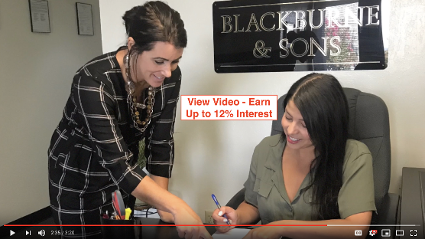 I was speaking with one of my very wealthy private investors about commercial loans last week. He is an attorney and a very sophisticated investor, so I was shocked when he revealed that he had just made a very large second mortgage on an apartment building in Houston.
I was speaking with one of my very wealthy private investors about commercial loans last week. He is an attorney and a very sophisticated investor, so I was shocked when he revealed that he had just made a very large second mortgage on an apartment building in Houston.
If you don't immediately recognize the issue, and if you are not thinking to yourself, "This guy is absolutely nuts," today's training lesson will be very instructive.

You will recall that an acceleration clause is the language in a trust deed or mortgage that gives the lender the right to demand to be repaid in full immediately. Normally you make monthly payments to your mortgage lender. If you fall behind, you can usually just bring your past due payments current, pay your late charges, and get back on a regular monthly repayment schedule.
But at some point; like if you fall behind by too many payments; or if you do something horribly wrong; like if you get caught mishandling toxic substances on the property; the lender will no longer allow you to reinstate your loan. Reinstate means bringing your past due payments currents or curing some defect on the property and then getting back on a monthly payment schedule.
An alienation clause in a trust deed or mortgage is language that gives a mortgage lender the right to accelerate his loan; i.e., to demand to be immediately paid in full. Alienate? Does that mean peeing on a Martian? Haha! No. Alienate means to transfer any part of the title to the property to any other person or entity.

"Okaaaay, George, but your wealthy investor didn't buy the apartment building. He didn't take any ownership interest in the property. He didn't buy the property subject to the mortgage. He merely placed a second mortgage on the property."
Mortgage lenders, modernly, define alienation to mean transferring all or part of the title to the property, placing a second mortgage on the property, obtaining a mezzanine loan secured by the membership interests of the LLC that owns the property, or issuing preferred equity to a preferred equity investor, without the lender's permission.
By the way, taking title to a property subject to a mortgage means that you don't notify the lender of the purchase and you don't assume the mortgage.

Now back to my "crazy" mortgage investor who made that second mortgage on the apartment building. Was he crazy? If the underlying lender finds out, the lender could demand that the entire commercial loan be repaid in full.
Whether the investor is crazy depends on the size of the underlying first trust deed. If my investor gets to earn 9% on a $1.5 million second trust deed investment, and if the underlying first trust deed was only $1.1 million, then my investor my investor was crazy like a fox.
By the way, you may have noticed that I used "trust deed" rather than "mortgage". Texas is a trust deed state, which is a big deal. It means a lender - especially a second trust deed lender - can foreclose much faster.

Can you imagine making a $1 million second mortgage behind a $6 million first mortgage and then being forced to keep the underlying first mortgage current for the 18 months it takes to foreclose a mortgage in a mortgage state? The monthly payments on a $6 million commercial loan are in the range of $38,000 per month. After 18 months, the second mortgage lender would have to shell out $684,000 to protect a $1 million investment. Yikes!
So if you are ever going to make a second mortgage investment, make sure that you are in a trust deed state, like California or Texas, and that your commercial loan is a second trust deed and not a mortgage. This way you only have to keep the first trust deed current for five months or so while you foreclose.
In how much danger is my investor? Even if the underlying bank somehow discovered the new second mortgage and accelerated its loan, my guy is rich enough to simply pay off the first mortgage - assuming it's not insanely large. And in real life, very few banks ever bother to check the title to property securing their commercial loans for presence of a junior lien (mortgage, mezzanine loan, or preferred equity).

The party who is real danger is the borrower. Many large commercial loans these days are non-recourse; i.e., if the market goes south and the borrower loses the property in foreclosure, the borrower is NOT personally responsible for any loses the lender suffers after foreclosing.
This assumes, however, that the borrower doesn't commit any Bad Boy Acts. Voluntarily placing a second mortgage on the property is a Bad Boy Act and will trigger a springing personal guaranty. A springing personal guaranty is a guaranty that becomes effective upon the occurrence of a certain condition, e.g., a bankruptcy filing, toxically contaminating the property, intentional waste, etc.

Suppose commercial real estate crashes by 45% (a magical number I urge you to remember). The second mortgage lender decides to simply walk away from his investment. The first mortgage investor forecloses, and in the chaos of the real estate crash (think the S&L Crisis, the Dot-Com Meltdown, and the Great Recession), the property gets neglected. The roof leaks, and mold starts to grow. Vandals break in and steal the copper and appliances. Squatters poop in the halls.
The result is a huge loss for the first mortgage lender, and because of the springing personal guaranty, the lender can now come back against the borrower for his losses. Word to the wise. Don't commit Bad Boy Acts.



















